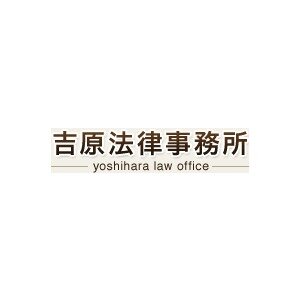Best Education Law Lawyers in Japan
Share your needs with us, get contacted by law firms.
Free. Takes 2 min.
Or refine your search by selecting a city:
List of the best lawyers in Japan
About Education Law in Japan
Education Law in Japan is designed to ensure the provision and maintenance of educational standards, governance, and rights in the educational landscape. It covers the regulatory frameworks for institutions, both public and private, teacher certification, student rights, and issues like discrimination and accessibility. The legal framework involves various laws and regulations set by the Ministry of Education, Culture, Sports, Science, and Technology (MEXT) which governs the administration of education from elementary to university level, as well as vocational education.
Why You May Need a Lawyer
There are several situations where individuals or institutions may require legal assistance in the realm of Education Law in Japan:
- Discrimination and Equal Access: Cases involving unequal treatment of students, discrimination based on race, gender, or disability.
- Special Education Needs: Issues related to the provision of special education and accommodations for students with disabilities.
- Disciplinary Action: Legal advice may be needed when addressing suspensions, expulsions, or appeals against disciplinary actions.
- Academic Integrity: Cases of plagiarism, cheating, or fraud may require legal resolution.
- Employment Issues: Teachers and staff may face issues related to contracts, unfair dismissal, or workplace discrimination.
Local Laws Overview
Japan's education system is governed by several key laws:
- Basic Act on Education: This is the foundational law for education, ensuring the provision of equal opportunities and setting the framework for educational policies.
- School Education Law: This law establishes guidelines for the structure and operation of the school system, covering everything from preschool to high school.
- Disability Discrimination Act: This act ensures non-discrimination and promotes equal access to education for students with disabilities.
- Child Abuse Prevention Law: This legislation includes provisions to protect children from abuse in educational settings.
- Labor Standards Law: This applies to employment practices within the education sector.
Frequently Asked Questions
What is the Basic Act on Education?
The Basic Act on Education is the primary law governing the objectives and principles of education in Japan, emphasizing democratic and equal access to education.
Do students with disabilities have specific rights under Japanese law?
Yes, under the Disability Discrimination Act and other regulations, students with disabilities are entitled to reasonable accommodations and equal access to education.
Are private schools in Japan subject to the same regulations as public schools?
Private schools are subject to some different regulations but must comply with national standards set by the Ministry of Education to operate legally.
What can I do if my child is facing discrimination in school?
You can seek legal advice and address the issue through the school administration or the local board of education. Legal recourse may be available through mediation or litigation.
Can a teacher be dismissed without cause in Japan?
Teachers are generally protected under labor laws, and dismissals must adhere to due process and legal justification.
How are bullying incidents addressed in Japanese schools?
Schools are required to address bullying under specific guidelines, and serious cases may involve legal actions or intervention by authorities.
Is homeschooling legal in Japan?
Homeschooling is not formally recognized under the current Japanese education system, and parents opting for homeschooling may face legal challenges.
What are the requirements for establishing a new educational institution in Japan?
Establishing a school requires compliance with educational regulations, accreditation from relevant authorities, and adherence to facility and curriculum standards.
What recourse is available for students wrongly accused of academic misconduct?
Students can appeal through the institution's academic integrity process or seek external legal counsel if necessary.
How can foreign students ensure compliance with Japanese education laws?
Foreign students should familiarize themselves with visa requirements and education laws, and seek advice from their institution's international office.
Additional Resources
For further assistance, numerous resources are available:
- Ministry of Education, Culture, Sports, Science and Technology (MEXT): The primary governmental body managing education standards.
- Local Education Boards: They can provide regional-specific advice and assistance.
- Japan Legal Support Center: Offers access to legal resources and referrals for professionals in education law.
- Disability Rights Organizations: These can provide support and legal advice for families facing accessibility issues.
Next Steps
If you need legal assistance with Education Law in Japan, consider the following steps:
- Consultation: Seek a consultation with a legal professional specializing in Education Law to discuss your specific situation.
- Documentation: Gather relevant documents, communications, and records related to your case.
- Legal Representation: If necessary, engage an attorney experienced in Education Law for representation in legal proceedings.
- Community Support: Reach out to local community groups or online forums for additional support and information.
Lawzana helps you find the best lawyers and law firms in Japan through a curated and pre-screened list of qualified legal professionals. Our platform offers rankings and detailed profiles of attorneys and law firms, allowing you to compare based on practice areas, including Education Law, experience, and client feedback.
Each profile includes a description of the firm's areas of practice, client reviews, team members and partners, year of establishment, spoken languages, office locations, contact information, social media presence, and any published articles or resources. Most firms on our platform speak English and are experienced in both local and international legal matters.
Get a quote from top-rated law firms in Japan — quickly, securely, and without unnecessary hassle.
Disclaimer:
The information provided on this page is for general informational purposes only and does not constitute legal advice. While we strive to ensure the accuracy and relevance of the content, legal information may change over time, and interpretations of the law can vary. You should always consult with a qualified legal professional for advice specific to your situation.
We disclaim all liability for actions taken or not taken based on the content of this page. If you believe any information is incorrect or outdated, please contact us, and we will review and update it where appropriate.
Browse education law law firms by city in Japan
Refine your search by selecting a city.












